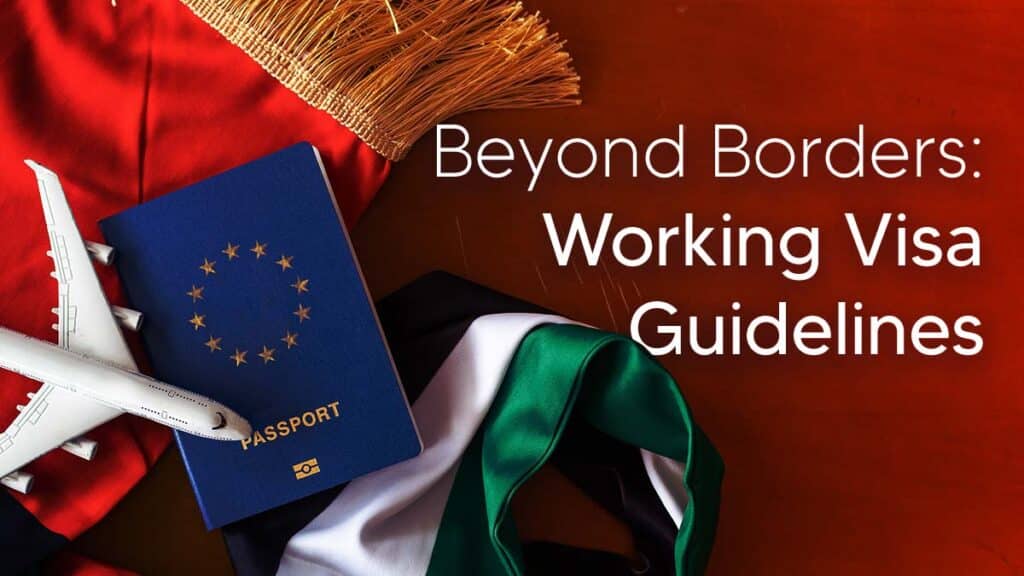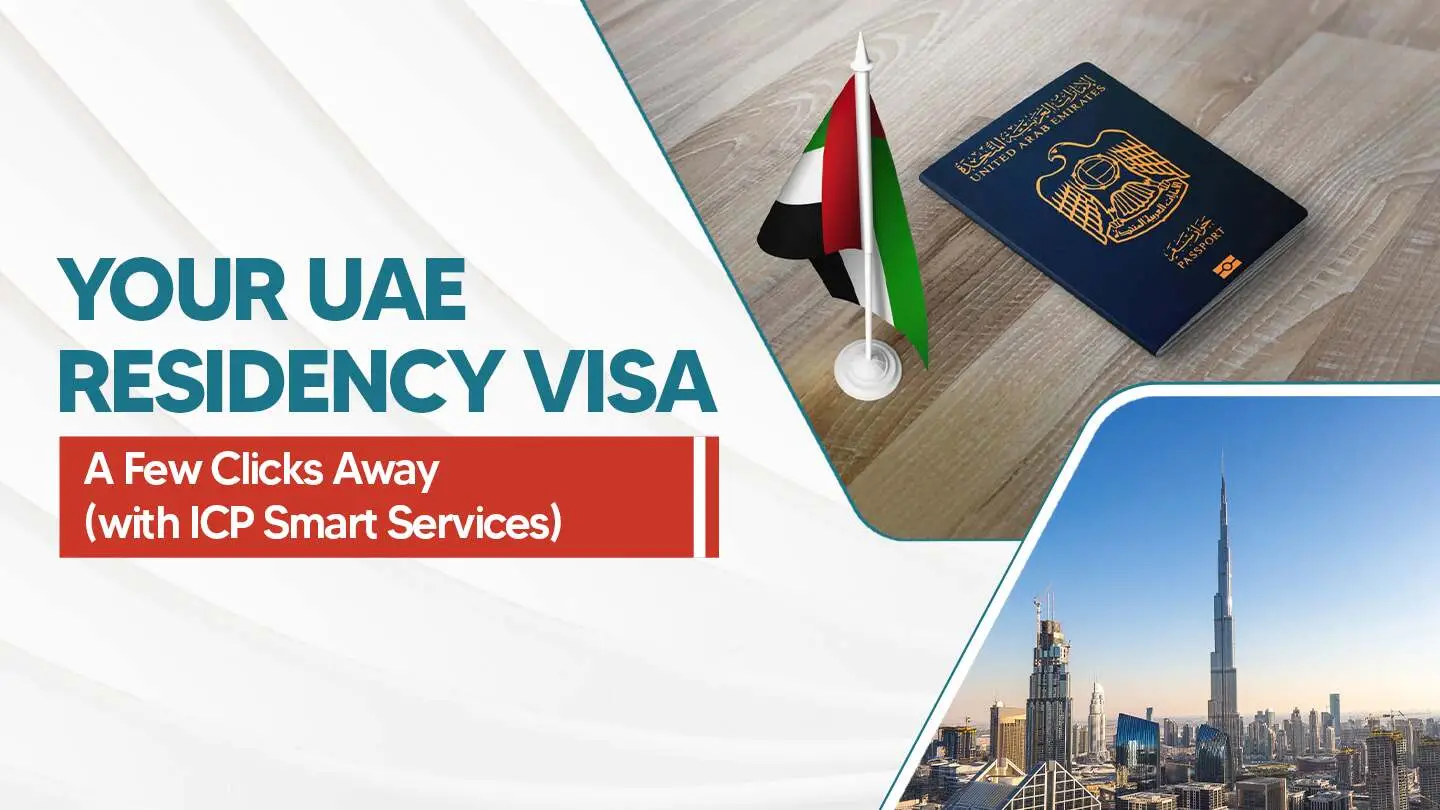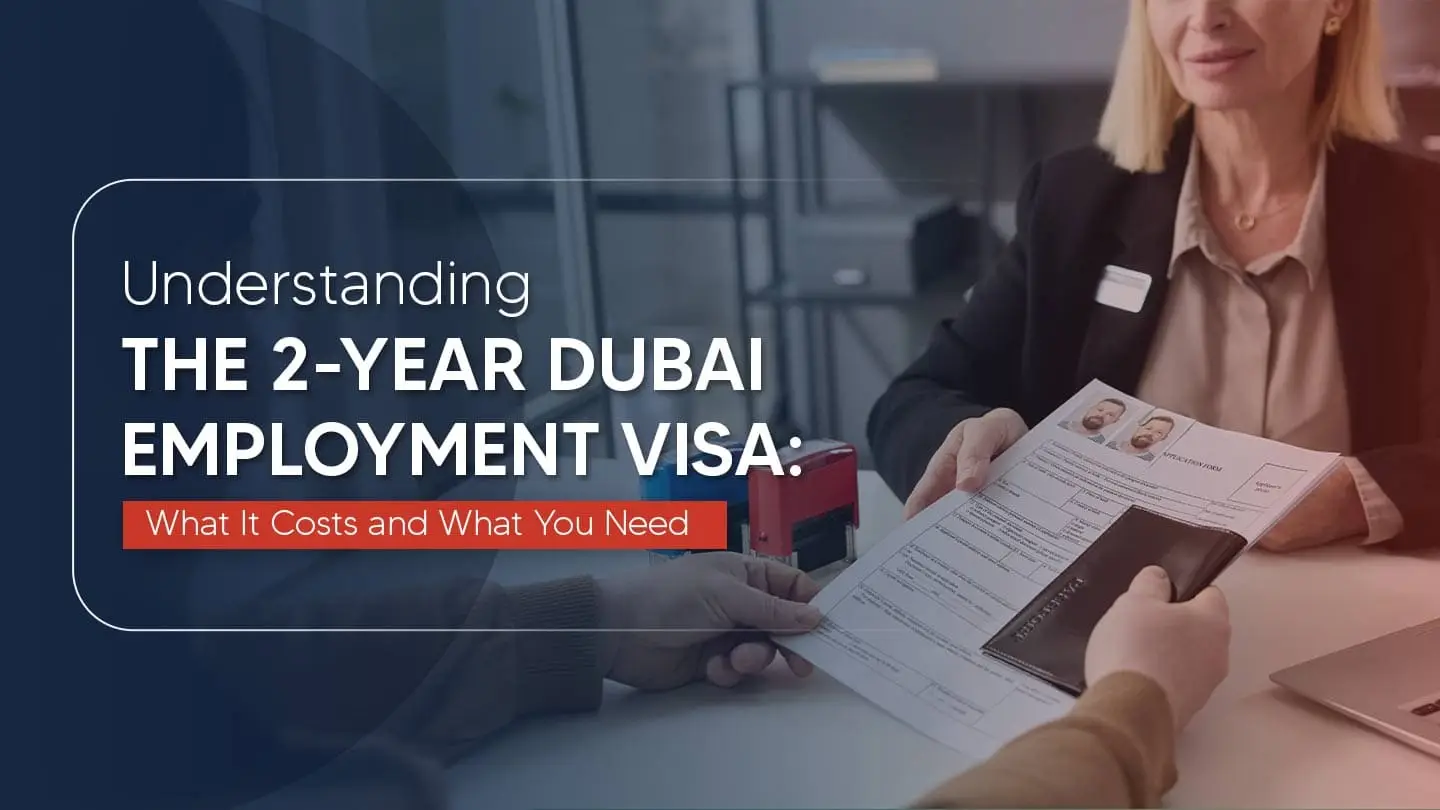Foreigners who work in the UAE must have a current work permit and work visa to properly work there. People who are in the UAE on a work visa don’t need any other visas to live there. With a work visa, you can stay in the country officially for the time specified. Here’s how to get a Dubai work visa.
One of the most important things to know about working in the UAE is that the company gives the work visa or work pass. You can’t apply for these cards or permits on your own as an employee. If you want to find a job in the emirate, you can get started by reading our step-by-step guide on how to get a job in Dubai. You can also look for jobs on websites and apps. We’ve made a list of the best job sites in the UAE.
Once you’ve found the right chance, you can move on to the next step.
The Ministry of Human Resources and Emiratization (MoHRE) gives out work licences in Dubai. Your company applies for this permit and then converts it into a legal residency visa. The work pass lets you go to the UAE and work there after you get the housing visa. The time frame for this permit is two months. During this time, your boss will have to set up things like a physical exam, an Emirates ID, a labour card, and a residency visa.
The main purpose of the residency visa is to show that the company is sponsoring you and has paid for your work permit, medical exam, and Emirates ID.
Once you have your resident visa, you can pay for your family to come to the country under your sponsorship. This also goes for single moms. Men can also get a work pass in UAE if their wives pay for it.
Types of work visas for the UAE
Foreign nationals must get a UAE work visa before travelling to the UAE to work. Three different types of work visas for the UAE are available to foreigners: normal work visas and Golden Visas. Depending on each applicant’s unique situation, the best visa will vary.
Standard Work Visa
An employer-sponsored work visa, known as a regular work visa in the UAE, enables an expat to live and work as an employee in the country for two to three years. The employer must either renew or terminate the visa after this point.
One of the most popular alternatives for working or recruiting people in the UAE is a normal work visa. The Ministry of Human Resources and Emiratization (MoHRE) has to approve it and an employment contract has to be in place.
A foreign person must accept a job offer in writing and get an entrance permit prior to travelling to the UAE on a regular work visa. They can enter the UAE with the entrance permission and start the formal application procedure for their work and residency visas.
Golden Visa
Professionals with extraordinary qualifications are eligible for the 10-year Golden visa, which enables them to live, work, and study in the UAE without the need for a local sponsor. Doctors, scientists, sportsmen, innovators, artists, healthcare workers, and others with certain skills are frequently eligible for the Golden visa.
Holders of golden visas are entitled to several advantages, including unrestricted sponsorship of immediate family members and support personnel and access to special health insurance plans. Additionally, individuals can leave the UAE at any moment without the duration of their visa being affected.
The Golden visa requires different supporting papers depending on the applicant’s history. To find out if a person is eligible for the Golden visa, take the eligibility test on the Federal Authority for Identity, Citizenship, Customs, and Port Security (ICP) website.
Who May Apply for a Dubai Work Visa?
If both the employer and the employee adhere to the requirements of the MoHRE, anybody above the age of 18 may work lawfully as an expat in the UAE. A broad summary of the MoHRE’s requirements for employment in the UAE may be found below:
- Business License.
- There are no offences by the employer.
- The employee’s job is consistent with how the business operates.
- The worker at least has a high school diploma.
- Although there is no upper age restriction for candidates, firms who hire people over 65 must pay an extra AED5,000 cost every two years.
Conditions for Obtaining an Employment Visa for the UAE
Depending on the visa type, different Dubai Work visa requirements apply. Following is a general list of the supporting documents needed to apply for a work visa in the UAE.:
- Both the original and a copy passport.
- Passport-sized photographs in compliance with UAE regulations.
- Emirates identification card.
- A permit to enter issued by the Ministry of Labour (MoL).
- A medical certificate from a UAE health facility that has received official approval.
- Copies of the worker’s academic credentials with approval from the ministry of foreign affairs and an embassy of the UAE in the worker’s place of origin.
- Documents provided by the employer, such as their business card and license.
- While the employee oversees submitting the paperwork for the residence permit, the employer oversees the application procedure and associated expenditures for the work visa.
10 Steps for Obtaining a Dubai Work Visa
Acquiring an employment entrance visa, requesting an Emirates ID, and acquiring a resident visa and work visa are the three steps that make up the application procedure for a UAE work visa. Below, we list the phases and their associated steps.
Stage 1: Obtain an employment entry visa for the UAE
1. Request approval of the entry visa quota
The employer must apply for a UAE free zone visa if the candidate lives and works in one of the country’s 46 free zones, which needs permission from the Ministry of Labor’s visa quota.
Employers in free zones are subject to quota restrictions on work visas, which differ amongst free zones. In Dubai, for instance, there is a quota of one visa for every nine square meters of business space. If an employer achieves its quota, they can upgrade their quota or relocate to a larger office.
2. Submit a completed employment agreement
The employer is required to submit a completed work contract to the MoL for approval after getting quota approval. If the employee’s native tongue is different from either English or Arabic, the contract must also be in that language.
3. Submit an application for an employment entry visa
The employer must submit their application for work visa approval. At this point, the MoL verifies if the sponsor is an officially recognised business body from the UAE and assesses if any available jobless UAE nationals can fill the open post in place of the foreign applicant. Before awarding an entrance visa, the MoL must approve the application for a work visa.
4. Obtain an entry-level employment visa
The MoL awards an employment entrance visa, often known as a pink visa, after approving the application for a Dubai work visa. For those with basic or green visas, the entrance visa is valid for two months; for those with Golden visas, it is valid for six months with repeated entries. Moreover, it enables the worker to formally enter the UAE and submit an application for a resident visa.
At the time of the employee’s arrival in the UAE, the entrance visa is granted. They may also request a one-time extension if they are unable to depart for the UAE within 60 days. The employee must apply for a visa “change of status” or do a “border run” if they are currently in the UAE on another type of visa to receive the entrance visa when they arrive.
Upon arrival, the employee must start gathering evidence for their resident visa application, such as an Emirates ID and a health certificate, while the company files extra paperwork to formally grant the work visa.
Stage 2: Requesting an Emirates ID
5. Obtain an Emirates ID.
Foreign nationals travelling to the UAE for employment or residing there must get an Emirates ID to undergo the mandatory medical examination. The ID, which replaces a passport as the primary form of identification in the UAE, is directly linked to the expat’s residency permit.
However, the employee must go to an Emirates Identity Authority (EIDA) center with their passport and entrance visa and present biometrics, including their fingerprints and a photo, to apply for an Emirates ID.
Stage 3: Obtain a work visa and a residence visa for the UAE
6. Get a Medical Exam
All candidates must undergo a medical examination at a UAE clinic licenced by the government. However, you must submit the examination’s findings with the application for a resident visa.
7. Submit the labour card
The MoL website requires employers to post their employee’s labour contract within 14 days of obtaining the findings of the employee’s medical screening as part of the formalisation of the Dubai work visa.
8. Obtain medical coverage
In the UAE, having health insurance is a requirement for all foreign workers. Employers have to provide health insurance to employees and their families in various Emirates, including Abu Dhabi and Dubai.
Foreign workers must obtain their own health insurance if they live in Sharjah or one of the northern Emirates. Whereas, employees without a current health insurance card cannot receive work visas from the MoL or have them renewed.
9. Obtain a work permit and start the payroll
The time it takes the MoL to officially award a work visa after completing the stages is around five days. Employees can start working legally in the UAE once they have their work visa, and companies may start processing payroll through the official UAE system.
10. Obtain a residence permit
The employee must submit the necessary paperwork together with their resident visa application once they fulfil all the requirements. An application receipt will also do if the applicant hasn’t obtained their official Emirates ID. The residency permit is extendable for a further two years.
However, to dwell in the UAE, all expats require a resident visa, which according to the MoL includes the employee’s work visa. To complete requirements like opening bank accounts, registering cars, and setting up PO boxes, expats also require a residence visa.
Dubai Employment Visa Costs
The following fees apply to UAE work visas:
For all categories and levels, the first approval fee for a new electronic work permit is AED 200.
Acceptance of the new electronic work permit (the employee’s hiring, recruiting, and labour card):
- Category 1: AED 300
- Category 2:
- AED 600
- AED 1,500
- AED 2,000
- Category 3: AED 5,000
Depending on the company’s mix of skill and unskill staff, the second group is divided down into tiers.
Most of the time, your employer is responsible for paying for your Dubai work visa.
Get your Dubai work visa with Shuraa
Foreign nationals who want to work in the Emirates must apply for a UAE work permit or a work visa in order to work there lawfully. The Federal Authority for Identity and Citizenship grants work permits (entry permits) to foreign nationals, allowing them to enter and work lawfully in the United Arab Emirates for a certain amount of time.
The Dubai work visa (Residence visa) is granted to foreigners when they arrive in the nation and use the entrance permission to enter. To move to the UAE, you will eventually need to obtain a resident visa, which will list your work permit. Get in touch with our experts at Shuraa, we will be providing with assistance in visa services to any company who registers their business with us. Moreover, to have a discussion with one of our knowledgeable specialists about Dubai business establishments for free, contact Shuraa. Contact us by phone at +971 4 4081900, over WhatsApp at +971 50 7775554, or by email at [email protected].







